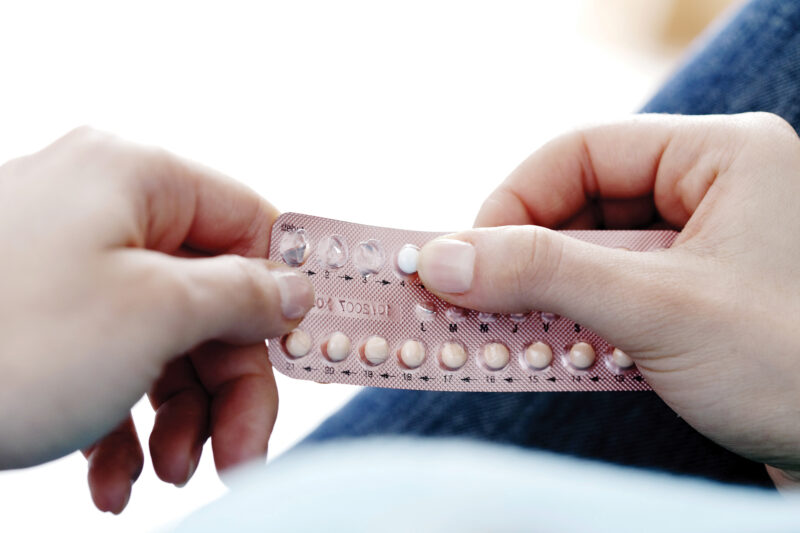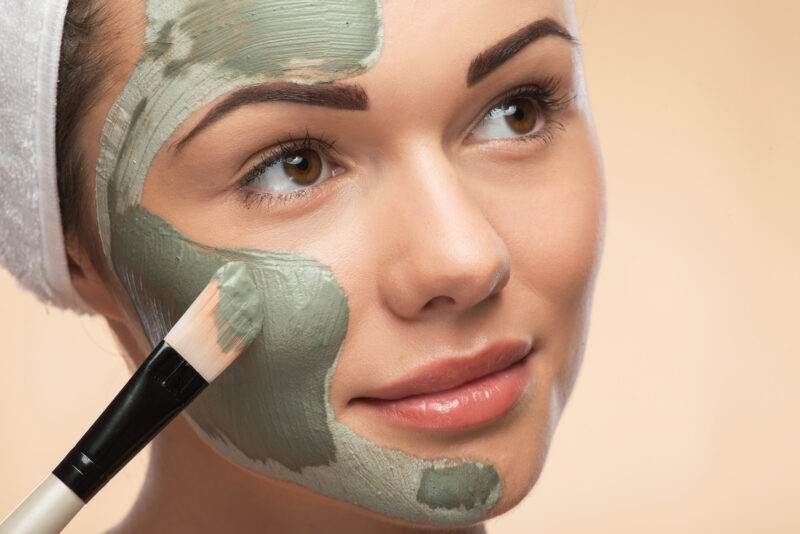You may have shopped till you dropped, chosen your D-day look and booked the tickets for your honeymoon. But, if you haven’t focused on your health, you may invite illnesses and stress that will ruin your wedding plans. Dr Parul R. Sheth tells you how to be a healthy, glowing bride
You are getting married in a couple of months. There is a lot of love and excitement in the air. You have so many things to think about—the wedding preparations, the trousseau, the accessories, ornaments and many more. Your dream of marrying the love of your life is about to be fulfilled. But are you forgetting something? Have you paid enough attention to your health? If you haven’t done so yet, know that this is one of the most important aspects to focus on before you tie the knot. It is essential to get a few health checks done before you marry. A complete general physical exam can include laboratory testing and a discussion about your family history and your future potential health risks, which could be important for both you and your spouse.

Carry out these blood tests
It’s important to carry out premarital blood tests to check your blood types to ensure your and your groom’s biological compatibility. This check-up of Rh blood type helps in pregnancy and blood transfusion. It is perfectly safe for you to marry someone with the same or a different blood type. Do get your blood tested for evidence of diseases such as past and present syphilis, gonorrhoea, rubella, and also German measles and tuberculosis. Detecting and treating syphilis can prevent transmission of the disease and its complications to your baby at the time of pregnancy. Rubella is a serious disease for a developing foetus, especially in the first trimester because it is associated with birth defects. A blood test identifies whether you are immune to rubella or not. A vaccine before pregnancy can reduce the chances of rubella. Thus, screening for rubella before marriage makes sense.
It is best for both the groom and the bride to take a simple blood test before marriage, to ensure that they are not carrying the thalassaemia trait. Thalassaemia is a blood disorder passed down through families or inherited, in which the body makes an abnormal form of haemoglobin leading to anaemia. If both are non-thalassaemia carriers, there is no worry but if one or both are carriers, they can decide not to have children because they may produce a child with thalassaemia.
If you have had sexual relationships, it is good to be tested for HIV and other sexually transmitted diseases. Diseases such as pelvic inflammatory disease can influence your future fertility.
Take a gynaecological examination
It is safe to take a complete pelvic exam to check for any abnormalities. If you have been sexually active, it’s a good time to have a Pap smear, also called a Pap test, which is a procedure to test for cervical cancer. The test involves collecting cells from your cervix. The test can also detect changes in your cervical cells that may turn cancerous in future. Early detection of cancerous cells gives a greater chance
of cure.

Decide on contraception
If you and your spouse decide not to have children immediately after marriage, you need to look into all the birth control methods before you pick one. You have several options to choose from. You must talk to your would-be spouse and to your doctor to find a comfortable and effective birth control method suitable to you. Whichever method you choose, use it correctly and consistently until you decide to have a baby. Amongst the several options, you have hormonal contraceptive pills—The Pill—a combination of oestrogen and progesterone hormones; a progestin only pill, also known as the Mini Pill; a hormonal patch, which needs to be changed once a week; a diaphragm that is inserted before sex or NuvaRing, which also requires vaginal insertion; intrauterine devices (IUDs), which need doctor’s help for insertion; Depo-Provera injection every three months or Mirena IUD containing only hormone progestin. Latex condoms for both men and women are the only birth contraceptives that reduce your risk of catching
sexually transmitted infections and HIV. Natural family planning methods are not as safe as other birth control methods. In fact, no birth control method is 100 per cent effective in preventing pregnancy.
Prepare yourself for an emergency
If you have had unprotected sex and you are worried about getting pregnant, you have an option. You can use emergency contraception in the form of the morning-after-pill in case of contraceptive failure or improper use of regular birth control method or forced sex. The pill contains levonorgestrel—hormone progestogen that helps prevent the implantation of the egg in the uterus and avoids the beginning of pregnancy. The pill should be taken orally within 72 hours of unprotected sex to prevent pregnancy. Remember, the pill is not an abortion pill. EC also involves using a copper IUD, which is inserted to prevent pregnancy shortly after unprotected sex. You can talk to your doctor about EC if the need arises.
Get rid of period ‘blues’
If, after your wedding date is fixed much in advance, you discover that your period is due on your wedding date or your honeymoon, talk to your doctor. Certain birth control pills can help delay the onset of your menstruation or halt your menstrual cycle. Synthesised hormone progesterone—norethisterone pills are usually prescribed to ease the symptoms of irregular or abnormally painful periods but these can also delay your period. Talk to your doctor before you start taking the hormone.
Be prepared for great sex
For comfortable and great sex, you need good vaginal lubrication. For a bride-to-be this is not a problem. It is your body’s way of telling you that you are turned on. Yet the wedding stress, an undiagnosed yeast infection or certain medications such as antihistamines, antidepressants, etc. may cause vaginal dryness. It is safe to keep lubricants (lubes) that are commercially available in store. Amongst the many lubes available, water-based lubes are the best choice as these are safe for condoms and easy to rinse off.

Pre-wedding and after wedding diet
For every bride-to-be, looking good during the impending wedding functions is most important. It is best to think about your health and fitness three months before the wedding. Crash diets and fad diets are absolute no-no. Begin your day with a healthy breakfast. Eat frequent meals—at least 3-5 meals in a day. Focus on nutrition and eating healthy food. Your diet plan should include enough calories, carbohydrates, adequate protein and healthy fat in addition to vitamins, antioxidants and iron-filled dark green leafy vegetables and fruits. Carbohydrates can be had from vegetables, fruits and complex carbohydrates from foods such as sweet potato, lima beans, black-eyed peas, etc. Avoid carbs from refined sugars such as candy, soft drinks or packed juices. Include almonds, chicken, fish, tofu, lean meat, etc., foods that are rich sources of proteins, in your diet. You can opt for protein supplements with your doctor’s advice. ‘Good’ fats help increase your ‘good’ cholesterol and lower your ‘bad’ cholesterol, and boost your immunity. Include olive oil, sunflower oil, soyabean oil, flaxseed oil, etc. in your diet. Pick nuts to snack. For gorgeous skin, eat avocados, walnuts, almonds, apples, etc. that are full of vitamins, minerals and essential fatty acids.
Try this pre-wedding workout
Every bride-to-be wishes to have a toned body. Health experts advise on starting your fitness goals about three months before the wedding. You can begin with 2-3 days of cardio exercises, weight training for 2-3 days interspersed with yoga and Pilates. Sleeping well, resting, relaxing can help you build up stamina and de-stress. Most importantly, you need to maintain your healthy routine through time.

Groom your Skin
Important skin-care rituals can begin 30 days prior to your wedding. Regular facials can bring a glow onto your face in addition to the enhanced natural glow of happiness. Try out your make-up and hairstyle beforehand to avoid last-minute jitters.
To avoid allergic reactions and the risk of redness and irritation on your face, avoid glycolic peels, dermabrasion or anything chemical for at least one month before your wedding. Less dramatic beauty procedures can be done as early as one week before your wedding. You may even get your eyebrows shaped a week before the wedding to avoid soreness, redness and swelling. Get your body waxing done at least three days prior to your wedding or earlier, especially if you have never had it done before, or if your skin is very sensitive.
Be stress-free
Try not to stress yourself over little things, as stress will show on your face. Practise yoga, deep breathing, pranayama, meditation, etc. to feel relaxed. Get a spa treatment; pamper yourself. Get all the possible beauty treatments like facial, pedicure, manicure, whole body massage and head massage, scalp treatment, body hair removal, dental treatment, etc. done. Relax and look forward to the most life-altering event in your life; this is one day in your life that belongs to you.


